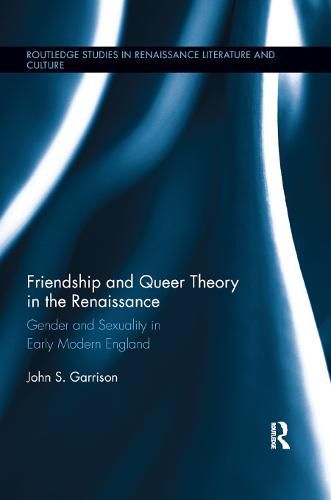Readings Newsletter
Become a Readings Member to make your shopping experience even easier.
Sign in or sign up for free!
You’re not far away from qualifying for FREE standard shipping within Australia
You’ve qualified for FREE standard shipping within Australia
The cart is loading…






In this volume, the author offers a substantial reconsideration of same-sex relations in the early modern period, and argues that early modern writers - rather than simply celebrating a classical friendship model based in dyadic exclusivity and a rejection of self-interest - sought to innovate on classical models for idealized friendship. This book redirects scholarly conversations regarding gender, sexuality, classical receptions, and the economic aspects of social relations in the early modern period. It points to new directions in the application of queer theory to Renaissance literature by examining group friendship as a celebrated social formation in the work of early modern writers from Shakespeare to Milton.
This volume will be of interest to scholars of the early modern period in England, as well as to those interested in the intersections between literature and gender studies, economic history and the economic aspects of social relations, the classics and the classical tradition, and the history of sexuality.
$9.00 standard shipping within Australia
FREE standard shipping within Australia for orders over $100.00
Express & International shipping calculated at checkout
In this volume, the author offers a substantial reconsideration of same-sex relations in the early modern period, and argues that early modern writers - rather than simply celebrating a classical friendship model based in dyadic exclusivity and a rejection of self-interest - sought to innovate on classical models for idealized friendship. This book redirects scholarly conversations regarding gender, sexuality, classical receptions, and the economic aspects of social relations in the early modern period. It points to new directions in the application of queer theory to Renaissance literature by examining group friendship as a celebrated social formation in the work of early modern writers from Shakespeare to Milton.
This volume will be of interest to scholars of the early modern period in England, as well as to those interested in the intersections between literature and gender studies, economic history and the economic aspects of social relations, the classics and the classical tradition, and the history of sexuality.